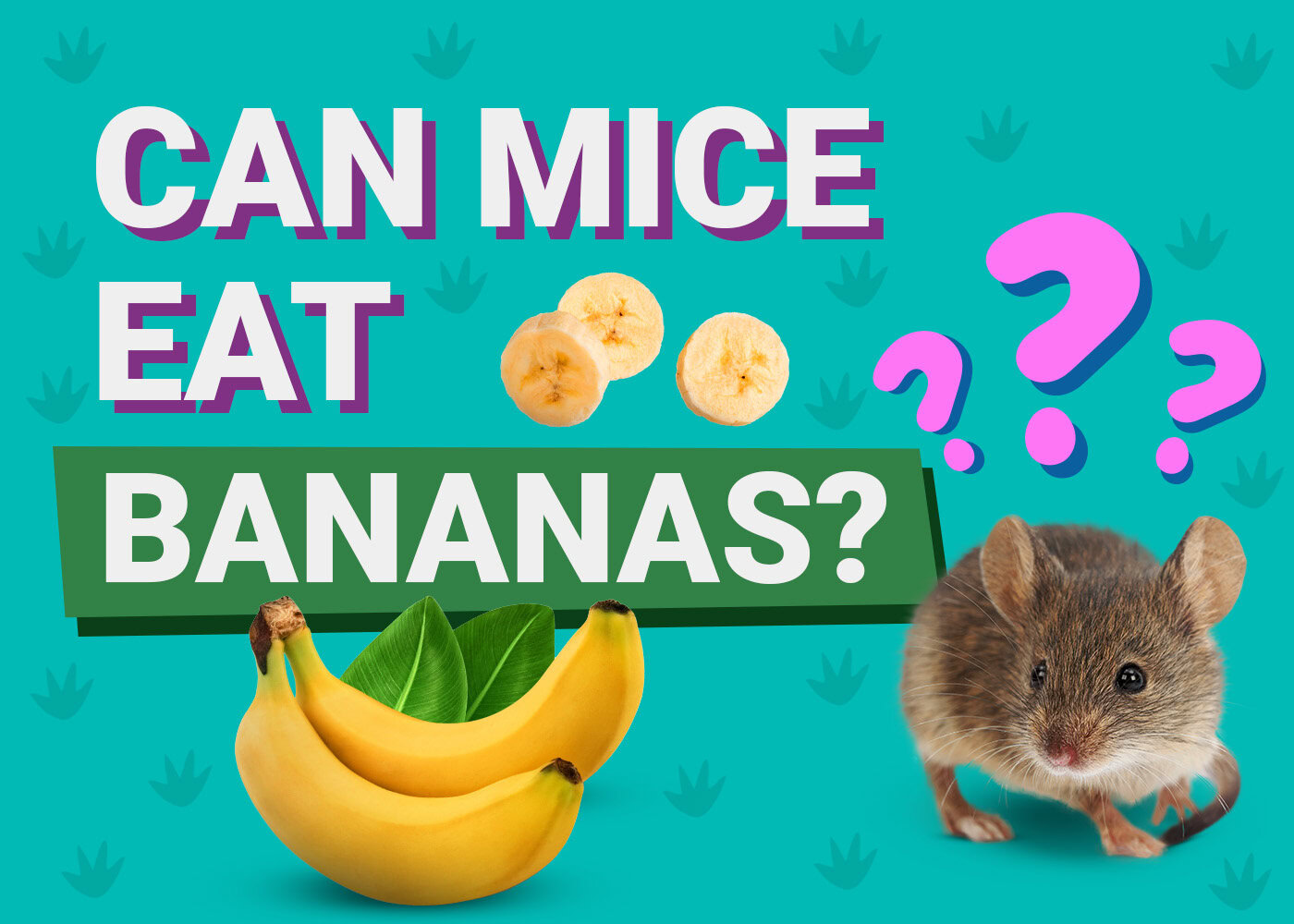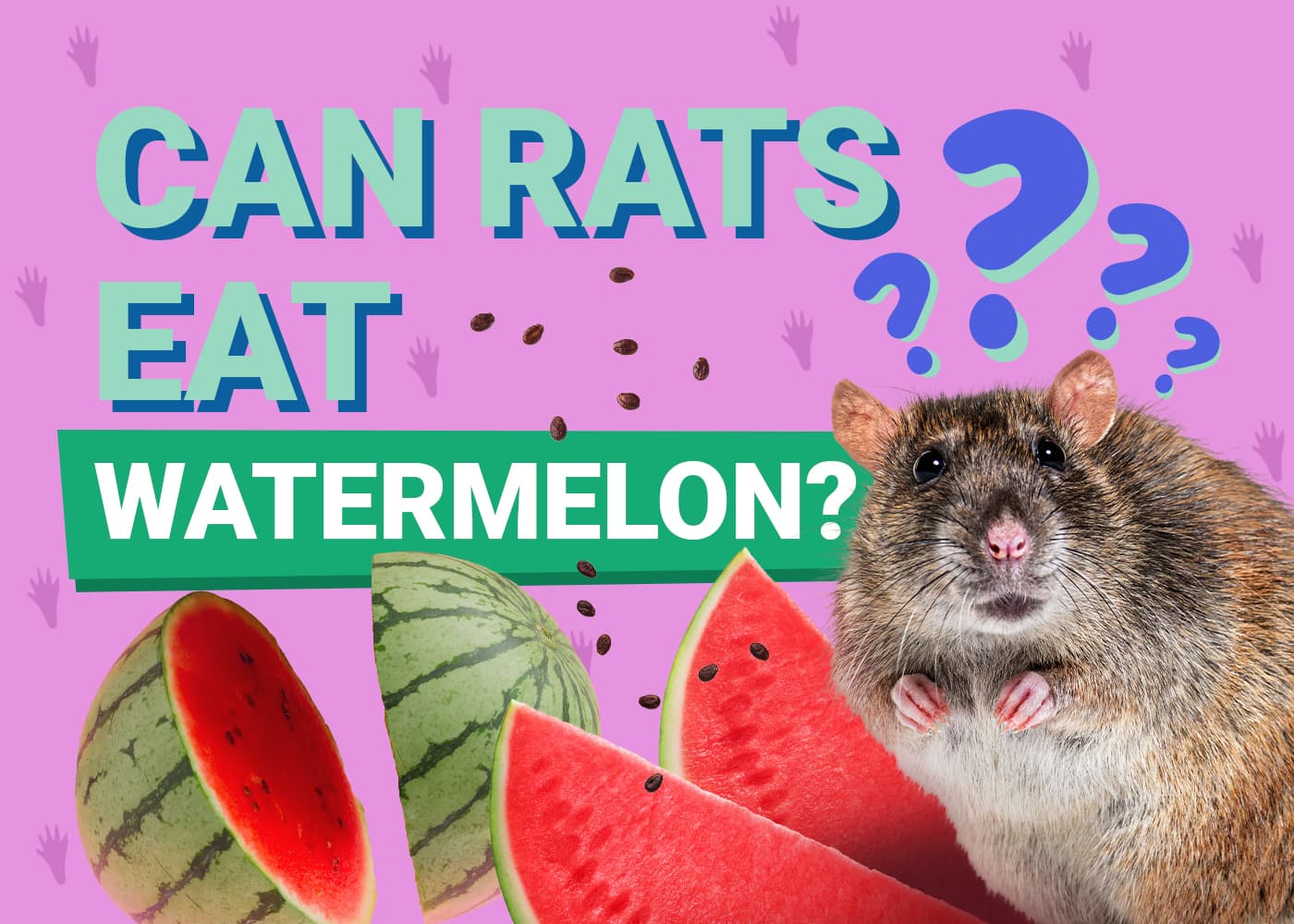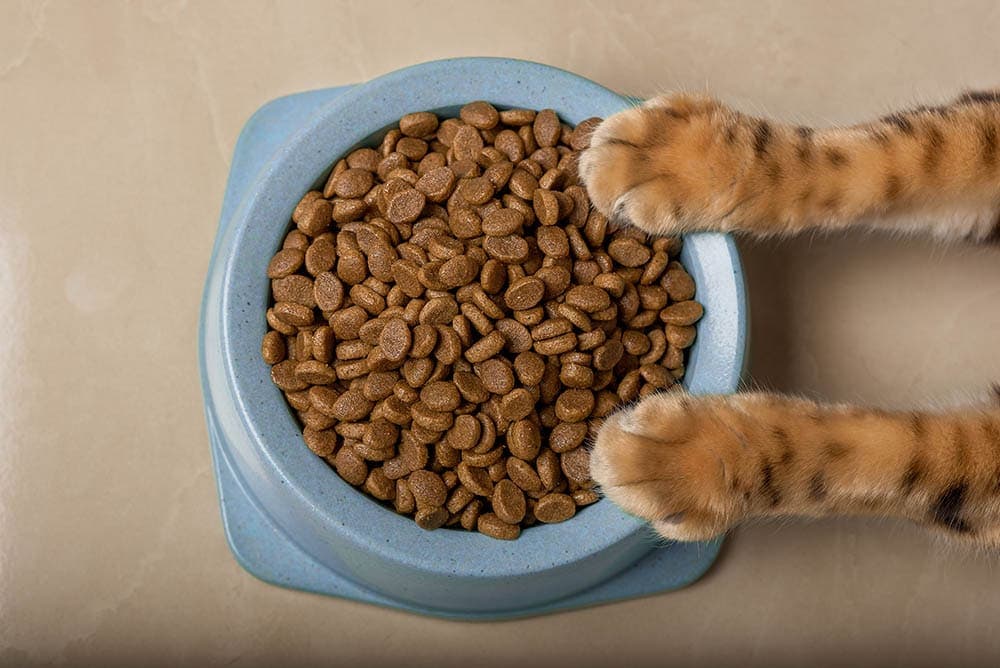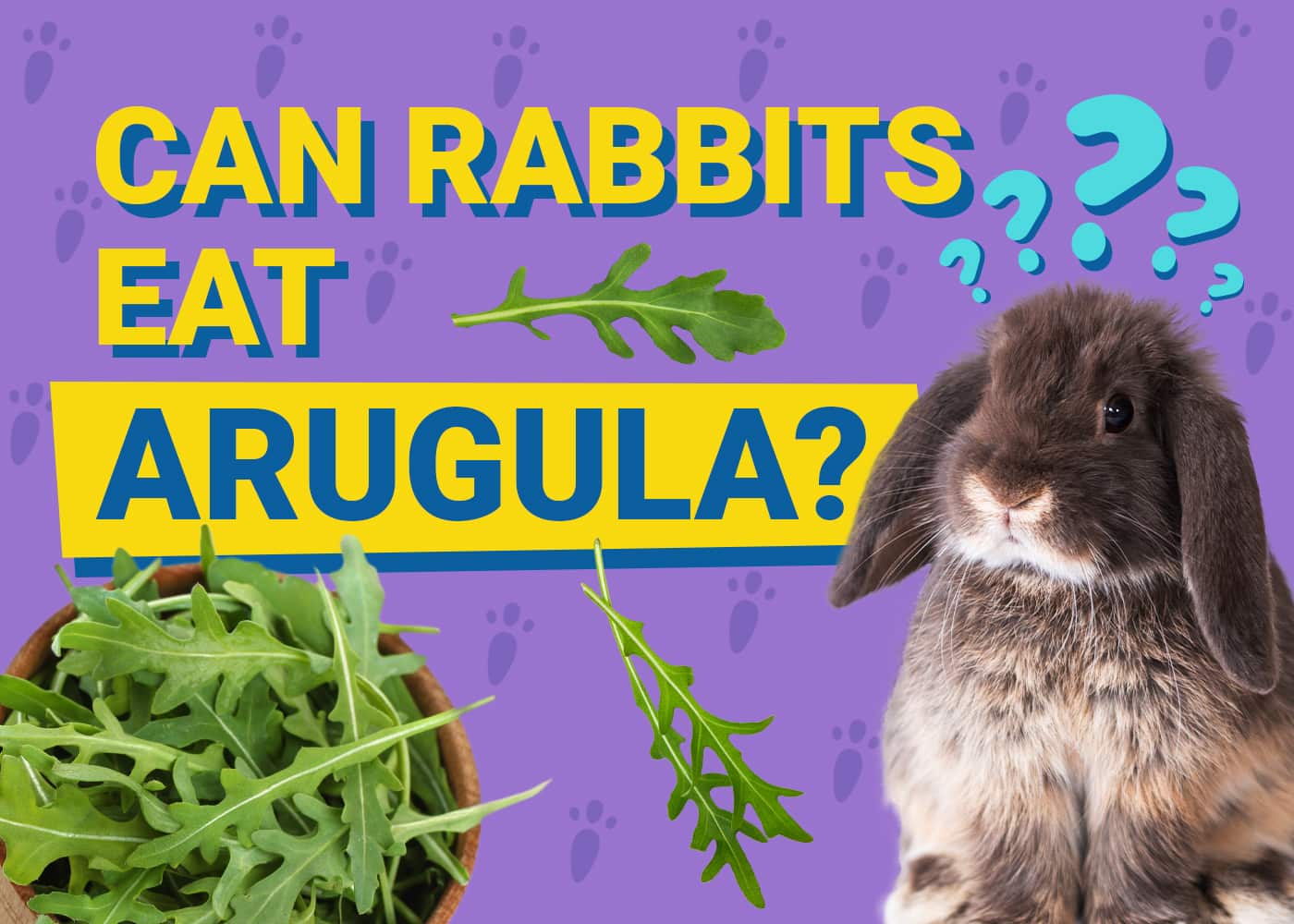VET APPROVED

The information is current and up-to-date in accordance with the latest veterinarian research.
Learn more »Click to Skip Ahead
Mice make great pets, especially for first-time pet owners. They are clean, quiet, and easy to care for. They’re also easy to feed. Mice are opportunistic eaters who will eat just about anything.
And, yes, this includes bananas. It’s perfectly fine to feed mice bananas in moderation. They even provide mice with some nutritional benefits. Keep reading to learn more about mice and bananas, as well as other foods mice can and cannot eat.

Wild Mice vs. Pet Mice
In the wild, mice are opportunistic omnivorous scavengers. They eat a wide variety of foods including seeds, plants, grains, invertebrates, small vertebrates, and even carrion. However, pet mice have different nutritional needs. For one, they aren’t as active as wild mice. Pet mice can quickly become obese if they are overfed and inactive.
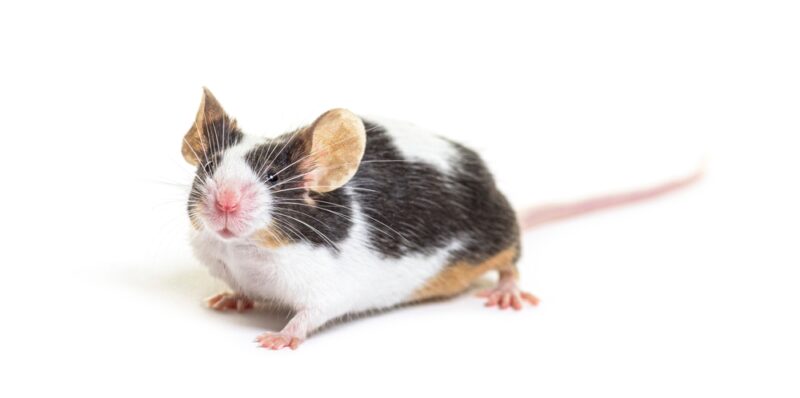
What Is a Healthy Diet for Pet Mice?
Because they are less active, pet mice don’t need the same foods a wild mouse would. For optimal health, the general consensus is that you should feed your pet mouse species-specific pellet food. This should make up the majority of their diet. You can put it in a small dish but it might be better to put a little in different areas of the cage as this encourages foraging behavior and keeps your mice moving, promoting enrichment and exercise in the process.
Although it may sound weird and somewhat disgusting, mice will also engage in coprophagic behavior. This means they will eat their own feces. Their stomachs are able to absorb more nutrients on the second passage. It’s normal behavior for mice and won’t harm them.
Mice also benefit from having their diet supplemented with high-fiber items such as hay and certain vegetables. They also enjoy protein-rich foods (such as worms) as occasional treats and often respond favorably to small fractions of seeds as well.
Fruits are often considered treats for pet mice, and in moderation may offer them some enrichment. This is where bananas come in!

What Parts of the Banana Can Mice Eat?
Your pet mouse will find the flesh of bananas the tastiest. When you feed your mice bananas (and any other fruit) you should cut them into small, manageable pieces. Some mice will even eat the peel of the bananas. This won’t harm them but too much can cause stomach upset as the peel of a banana is very high in fiber.
It’s best not to feed your mice too much banana or any other food for that matter. They do best when they are provided with a varied diet that includes all the nutrients they need without excess to cause weight gain.
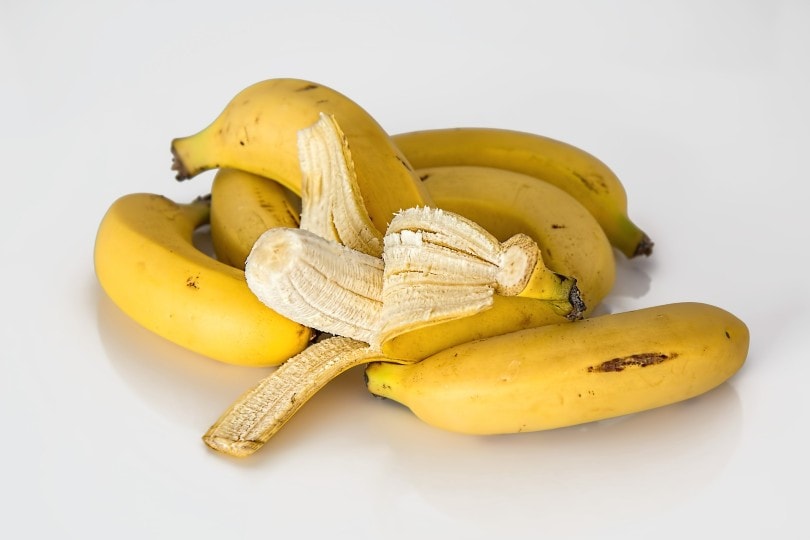
What Are the Benefits of Bananas for Mice?
Bananas are a healthy occasional treat for mice that offer some nutritional benefits. Their primary benefit is the fact that they are very energy-rich, owed to the naturally occurring sugars found in them. While this isn’t as unhealthy as added sugars, you should still avoid giving your mice too many foods that are high in sugars. It can cause them to gain weight which will eventually lead to other serious health problems. For this reason, vegetables are often preferred over fruits for a pet mouse’s diet (as they are often lower in such naturally occurring sugars).
What Other Fruits and Vegetables Can Mice Eat?
Along with bananas, there are many other fruits and vegetables your pet mice can eat. Remember, don’t overdo it with any one type of produce, and use these foods as special treats.
- Apples
- Berries
- Bok Choy
- Broccoli
- Brussels Sprouts
- Carrots
- Cooked Corn
- Green Beans
- Kale
- Mango
- Melons
- Peaches
- Pears
- Peas
- Plums
- Spinach
- Tomatoes
Don’t forget to dice their food into small, manageable pieces. You can also hide these foods around their cage for the mice to forage. However, you’ll want to make sure to remove any uneaten portions daily to prevent rotten food and bacteria.
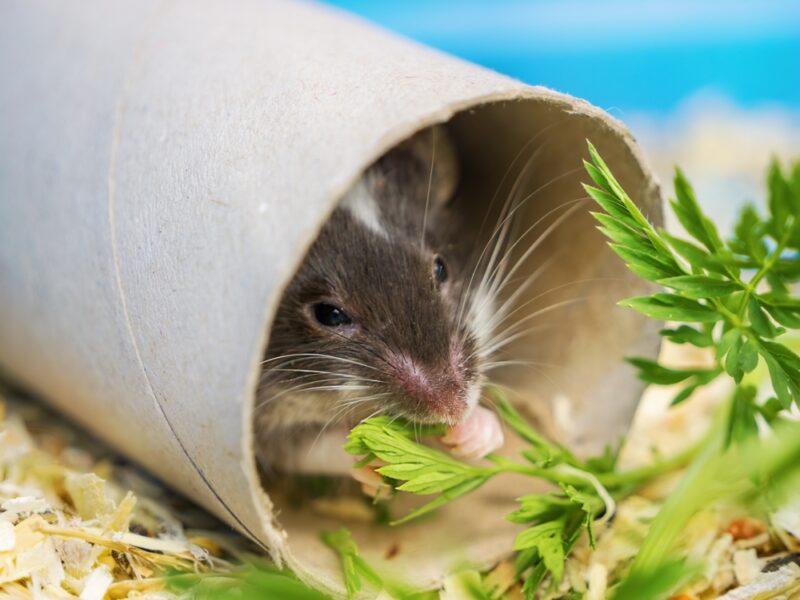
What Foods Aren’t Safe for Mice?
While mice in the wild are known for eating anything they can get their hands on, this doesn’t mean they should or that it’s good for them. Some foods you should not feed your mice include:
In conclusion, yes, mice can eat bananas. Like many fruits, they aren’t strictly essential to the health of your pet mice. As such, you should only feed mice bananas and other fruits in moderation to prevent weight gain. See also: Featured Image Credit: ROSITO, Shutterstock

Final Thoughts
